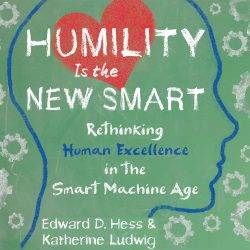April 24, 2017
Commercial property lenders should drive sustainability through financial innovation 0
 The commercial real estate finance sector is witnessing a dramatic shift in attitudes towards the issue of sustainability, according to a new report from the Better Buildings Partnership. It claims that major commercial property lenders are already exploring new opportunities that go well beyond traditional risk management through sustainability initiatives that ‘drive new business, strengthen customer relationships and improve the data they hold on the buildings in which they have underwritten’. The report, Beyond Risk Management: How sustainability is driving innovation in commercial real estate finance, is sponsored by CREFC Europe, GeoPhy, ING Bank and Lloyds Bank Commercial Banking, and claims to reveal pioneering examples of how lenders are incorporating sustainability into their core business activities.
The commercial real estate finance sector is witnessing a dramatic shift in attitudes towards the issue of sustainability, according to a new report from the Better Buildings Partnership. It claims that major commercial property lenders are already exploring new opportunities that go well beyond traditional risk management through sustainability initiatives that ‘drive new business, strengthen customer relationships and improve the data they hold on the buildings in which they have underwritten’. The report, Beyond Risk Management: How sustainability is driving innovation in commercial real estate finance, is sponsored by CREFC Europe, GeoPhy, ING Bank and Lloyds Bank Commercial Banking, and claims to reveal pioneering examples of how lenders are incorporating sustainability into their core business activities.

























 Very few organisations are ready to manage a workforce where the latest technologies and people work side by side. Just 13 percent of UK companies are ready to respond to digital disruption and create “the organisation of the future”; despite 88 per cent believing this has become a priority. This is according to the 2017 Deloitte Global Human Capital Trends survey, which tracks the top trends shaping the agenda for HR and business leaders. However, while UK companies believe they are ill-prepared for the change brought by digital disruption, this has not stopped many of them from embracing disruptive technologies. 42 per cent report that they have adopted robotics, cognitive and artificial intelligence (AI) technologies within all or parts of their workforce. Another 42 per cent are running pilots in certain areas of their organisation. But only 16 per cent say they are ready to manage a workforce with people, robots and AI working side by side.
Very few organisations are ready to manage a workforce where the latest technologies and people work side by side. Just 13 percent of UK companies are ready to respond to digital disruption and create “the organisation of the future”; despite 88 per cent believing this has become a priority. This is according to the 2017 Deloitte Global Human Capital Trends survey, which tracks the top trends shaping the agenda for HR and business leaders. However, while UK companies believe they are ill-prepared for the change brought by digital disruption, this has not stopped many of them from embracing disruptive technologies. 42 per cent report that they have adopted robotics, cognitive and artificial intelligence (AI) technologies within all or parts of their workforce. Another 42 per cent are running pilots in certain areas of their organisation. But only 16 per cent say they are ready to manage a workforce with people, robots and AI working side by side.











